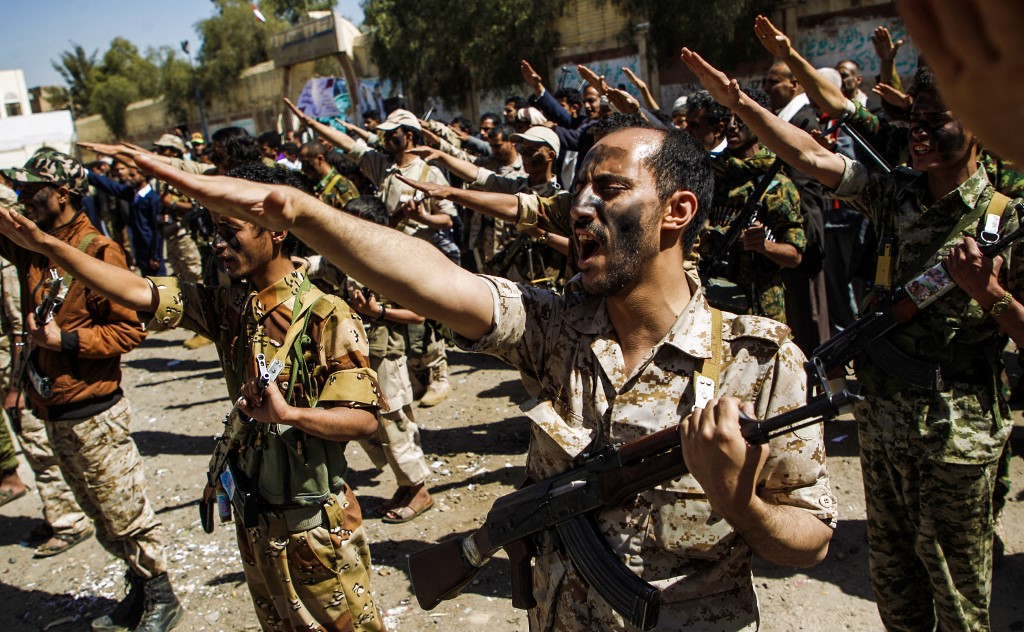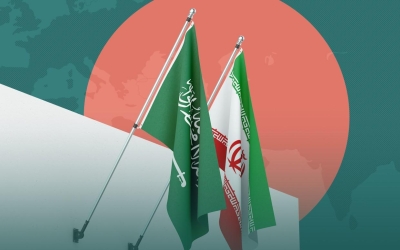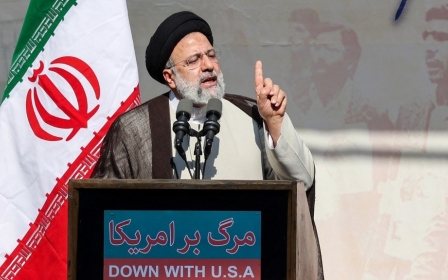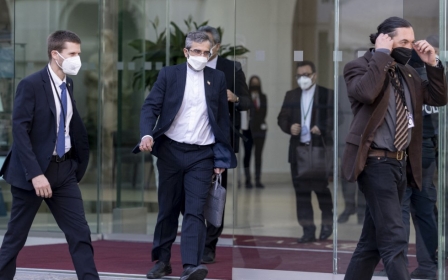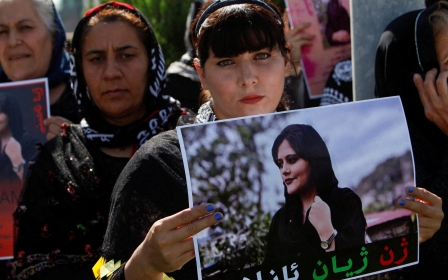Saudi-Iran reconciliation: Why Riyadh and Tehran felt the time was right
It took seven years and five rounds of talks for Saudi Arabia and Iran to finally reach an agreement to re-establish official relations between the two countries.
The agreement came to fruition not only through the mediation of Iraq and Oman, but most importantly because of the initiative of China's President Xi Jinping.
According to the deal, the two sides have agreed to reopen their embassies within two months and reactivate the cooperation and security agreements signed in 1998 and 2001. This agreement was reached on 10 March after the last round of talks, which lasted only four days.
The key questions are about the timing, the reasons behind the agreement, and the implications for both countries.
Developments in the region and the need for the two countries to communicate with each other are significant factors in the renewal of relations, which were severed in 2016.
From Iran's point of view, its unprecedented political isolation has been a key motivation.
Over the past year, Iran's brutal suppression of popular protests, the sending of drones to Russia for its war in Ukraine, the discovery of 84 percent enriched uranium in its nuclear facilities, its expulsion from the UN Commission on the Status of Women, and the suspension of nuclear negotiations between Iran and the US have seen Tehran attract international condemnation.
This atmosphere was so dangerous for Iran's international legitimacy that Abbas Araghchi, Iran's former deputy foreign minister, warned government officials that they should not allow demonstrations to be held against the Islamic Republic abroad.
Nuclear weapons
It was this isolation and international condemnation that made Iran determined to restart relations with Saudi Arabia. Riyadh has considerable influence over Bahrain, Jordan, the United Arab Emirates and, until recently, Egypt. Iran's de-escalation of tensions with Saudi Arabia follows active diplomacy with these states.
In addition, under a strategy known as the “neighbourhood policy”, Iran could benefit from renewed economic relations with Saudi Arabia, and see reduced support from Riyadh for the anti-Iran television channel Iran International, run by a Saudi national in London, and the Mojahedin-e-Khalq Organisation, which Iran designates a terrorist group.
Mohammed bin Salman's rhetoric against Iran's leader Ali Khamenei was damaging, especially when he compared him to Hitler
Saudi Arabia also needed to renew dialogue with Iran. Iran-backed allies in the Arab world have been impeding Riyadh's diplomatic activities in Iraq, Yemen, Lebanon and Syria.
Saudi Crown Prince Mohammed bin Salman's rhetoric against Iran's leader Ali Khamenei was damaging, especially when he compared him to Hitler.
He said that if Iran acquired a nuclear bomb, Riyadh would not hesitate to do the same, as Saudi Arabia would be in danger of a nuclear strike from Iran. In November 2022, the Wall Street Journal reported a possible imminent Iranian attack against Saudi Arabia in an attempt to divert public opinion from the anti-government protests.
Cooperation between Iran and Saudi Arabia may lead to the resolution of disputes in some Middle East countries. Lebanon's complicated political and economic situation and the stalemate in the appointment of a president may be resolved more easily with the patience of both countries.
Last week, after Hezbollah supported Suleiman Frangieh's presidential candidacy, Saudi Arabia countered by announcing that it would support a “non-corrupt” president.
Yemen and China
The most important issue between the two countries is Yemen. Analysts believe the Saudis would not have agreed to improve ties with Iran without concessions on the Islamic Republic's involvement in Yemen.
But it is not clear what concessions Iran has given or can give to Riyadh. Even though Iran influences the Houthis, it does not play the role of commander for them. The Houthi movement is independent of Iran regarding whether it continues the conflict or negotiates an end to it. Riyadh and Tehran will eventually conclude that the Houthis and the government in Aden are two inseparable realities, and the path of Yemen's political future will pass through both groups.
Saudi Arabia's desire to communicate with Iran also originates from the movement towards a foreign policy independent of Washington. In the last decade, the US has been less interested in supporting its allies in the Middle East. Washington did not respond militarily to attacks on Saudi Arabia's oil facilities in 2019. “That was an attack on Saudi Arabia. That wasn't an attack on us,” then-President Donald Trump said at the time.
The US has also been angered by the OPEC oil quota reduction supported by Riyadh, despite requests from President Biden to increase output. For this reason, one should not be surprised by China's intermediation in this agreement.
China’s role in this agreement may be a sign of its growing confidence in its regional presence, and a sign that it thinks there is space to challenge US dominance in the Middle East.
By adopting a 'zero enemy policy', China has been able to maintain balanced relations in the region
“China is now the godfather of this agreement and that holds great weight,” said Ali Shihabi, a commentator who is close to the Saudi government.
He believes that “history has taught us that bilateral agreements with Iran are not worth the paper they are written on… it's China’s involvement as a signatory (not just a mediator) that puts meat on the bones here.”
However, China has tried to be neutral among its allies in the Middle East. By adopting a “zero enemy policy”, China has been able to maintain balanced relations in the region.
Beijing does not intend to punish the violators of the agreement with punitive measures. Just as Saudi Arabia supplies 18 percent of China's oil, Iran is also in line to receive $400bn of investment in its infrastructure according to a 25-year cooperation agreement with China. However, if there is any country with influence over the Raisi government, it is China - as well as Russia.
Iran's perspective
Iran's government welcomed this agreement. The Ministry of Foreign Affairs and the speaker of the Iranian parliament considered it an important step for the stability of the region and the Persian Gulf.
Some Iranian analysts thought that China acting as a broker instead of the US was a sign of Washington's declining power in the new world order. An analysis by Mehr News Agency, called "the new world order without the chief", said that "the candles of the reconciliation cake of Tehran and Riyadh were blown out next to the Great Wall of China [instead of the US]”.
Other media reports focused on Israel's anger over the deal and its impact on the nuclear negotiations.
Another dominating view highlights the difference between Iran’s two political rivals: the reformists and the principlists, commonly known as the conservatives.
Some conservative politicians suggest that Saudi Arabia was forced to de-escalate tensions with Iran due to its weak regional standing. They claim that the active policy of the conservative government of President Ebrahim Raisi has resulted in some diplomatic gains for Iran, such as membership of the Shanghai Cooperation Organisation and de-escalation with Saudi Arabia.
Mohammad Hosseini, Iran's vice president for parliamentary affairs, said in a television interview that he had met with the foreign minister of Saudi Arabia at the inauguration ceremony of the president of Brazil, Luiz Inacio Lula da Silva. It had been clear in that meeting that Saudi Arabia was ready to establish relations with Iran.
On the other side are the reformists, who say that the present conservative administration is actually walking in the footsteps of the reformist government of former President Mohammad Khatami (1997-2005) when it adopted a de-escalation policy in the region.
Hamid Abutalebi, vice president of the reformist government of President Hassan Rouhani (2013-2021), wrote in a tweet: “Nearly two years of negotiations by this government, through mediators [had only one achievement which] was to reach a memorandum of understanding 20 years ago!” He was referring to the reactivation of the 1998 and 2001 security agreements between Riyadh and Tehran during the time of Khatami.
Another line of argument has focused on the impact this agreement would have on the Iranian currency, with the lowering of the dollar and gold rates as a response. Recently, Iran had seen a devaluation against the dollar exchange rate, up to as much as 600,000 rials. On 10 March, it was 477,000 rials. After the agreement, it dropped to 405,900 rials.
Although the agreement between Iran and Saudi Arabia to re-establish diplomatic relations after seven years has been welcomed by various countries, it would be wise to remain cautious.
The agreement is fraught with structural and deep-seated problems across the region. As such, it remains to be seen whether both countries can achieve a major breakthrough on some of the most continuous issues, or whether the agreement, ultimately, will simply be ink on paper.
The views expressed in this article belong to the author and do not necessarily reflect the editorial policy of Middle East Eye.
This article is available in French on Middle East Eye French edition.
Middle East Eye propose une couverture et une analyse indépendantes et incomparables du Moyen-Orient, de l’Afrique du Nord et d’autres régions du monde. Pour en savoir plus sur la reprise de ce contenu et les frais qui s’appliquent, veuillez remplir ce formulaire [en anglais]. Pour en savoir plus sur MEE, cliquez ici [en anglais].



